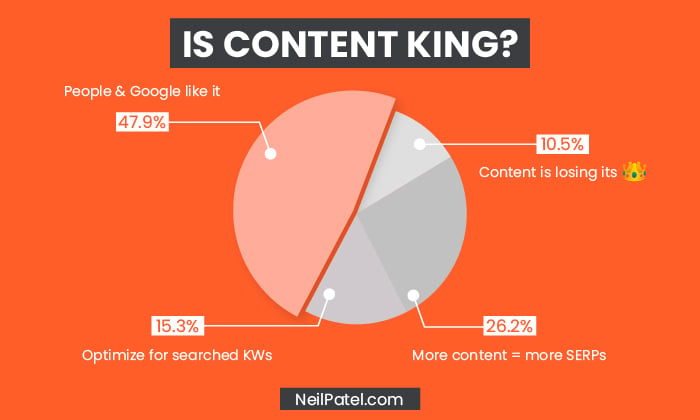
If you’re just starting out with marketing, it can feel like diving into a vast ocean with no clue which way to swim. There are countless marketing strategies for beginners, tools, and tactics thrown around, and it’s easy to get overwhelmed. But marketing strategies for beginners don’t have to be complicated—especially when you’re just getting started. With the right marketing strategies in place, you can make a lot of progress without drowning in all the noise. Let’s break it down and cover the essential marketing strategies beginners need to hit the ground running.
1. Know Your Audience (Seriously)
This is the golden rule of marketing regardless of your industry and experience: you need to know who you’re talking to. It’s tempting to want to appeal to everyone, but that’s like throwing spaghetti at the wall and hoping it sticks. Instead, focus on defining your target audience. What do they care about? What problems do they have that you can solve? What are their hopes, dreams, fears?
To do this, try creating a “customer avatar.” Imagine one person that represents your ideal customer and get specific with it. Give them a name, age, job, and hobbies. Think about where they hang out online. The more you understand your audience, the easier it will be to create content and messaging that resonates with them.
2. Start with One Marketing Channel
When you’re starting out, there’s a temptation to be everywhere at once. You might think, “I need to be on Instagram, YouTube, Twitter, TikTok, and LinkedIn.” But trying to juggle multiple platforms as a beginner can spread you too thin. Instead, focus on just one marketing channel and get really good at it. Most beginners fall for this, they think the best marketing strategies would be to appear everywhere, but this will lead you to our next point, where consistency is just as important.
For instance, if you love writing, blogging might be your go-to. If you enjoy speaking, maybe it’s time to start a YouTube channel. If you’re more into quick bursts of content, Instagram or TikTok might be your playground. Choose one platform where your audience is, and commit to being consistent on that channel. Once you’ve built a solid foundation, then you can expand to other platforms.
3. Content is King (But Consistency is Queen)
You’ve probably heard the phrase “content is king,” but there’s a catch: consistency is just as important. You can create the best piece of content ever, but if it’s your only post for the month, it’s not going to do much. The key to successful marketing is showing up regularly.
This doesn’t mean you need to post every single day, but find a schedule you can stick to—whether that’s weekly, bi-weekly, or even monthly. The more consistent you are, the more you’ll build trust with your audience, and the more likely they’ll come back for more.

4. Build an Email List (Like, Yesterday)
If there’s one piece of advice I’d shout from the rooftops, it’s this: start building an email list as soon as possible. Social media platforms are great, but you don’t own those platforms. Algorithms change, accounts get shut down, and your reach can be limited. But your email list? That’s your direct line to your audience.
Start by offering something valuable in exchange for someone’s email—this could be a free guide, a discount, or exclusive content. Then, nurture that list with valuable, engaging content. Keep in mind that the people on your list are giving you their time and attention, so treat it as a privilege and provide real value.
5. Leverage Analytics (Even if You’re Not a Numbers Person)
I know, analytics can feel daunting, but trust me—data is your friend. If you want to grow, you need to understand what’s working and what’s not. The good news is that you don’t need to become a data wizard to get the basics down.
Start by looking at metrics like engagement, traffic, and conversions. If you’re on social media, pay attention to which posts perform well and why. If you’re running a blog, see which articles drive the most traffic. Understanding these numbers helps you make smarter decisions moving forward and helps you improve your marketing efforts over time.
6. Don’t Be Afraid to Test and Tweak
Marketing isn’t a one-size-fits-all deal. What works for one person or brand might not work for another. That’s why it’s essential to adopt a mindset of constant testing and tweaking.
Try different types of content, experiment with various posting schedules, or test different email subject lines. The key here is to see marketing as an ongoing experiment. You don’t need to get it perfect on the first try. It’s all about learning what works best for you and your audience, and then doubling down on that.
7. Stay Authentic and Provide Value
People can tell when you’re just trying to sell something versus genuinely providing value. Authenticity matters in marketing, and it’s especially important when you’re just starting out. In fact, one of the most effective marketing strategies for beginners is to focus on building trust.
Instead of only promoting products or services, share useful tips, behind-the-scenes content, and solutions to your audience’s problems. The more value you provide, the more your audience will trust and engage with you.
Final Thoughts
Getting started with marketing as a beginner doesn’t have to be overwhelming. It’s all about focusing on the basics, staying consistent, and always putting your audience first. If you know who you’re speaking to, stay authentic, and commit to delivering value, you’ll be well on your way to marketing success.
If you’re ready to take your marketing skills to the next level, Insighter Learning offers HRDF claimable courses, specializing in marketing and sales training. Whether you’re looking to refine your strategy or dive deeper into specific techniques, our courses are designed to help you master the essentials and grow your business. Reach out to us today to start your journey!
